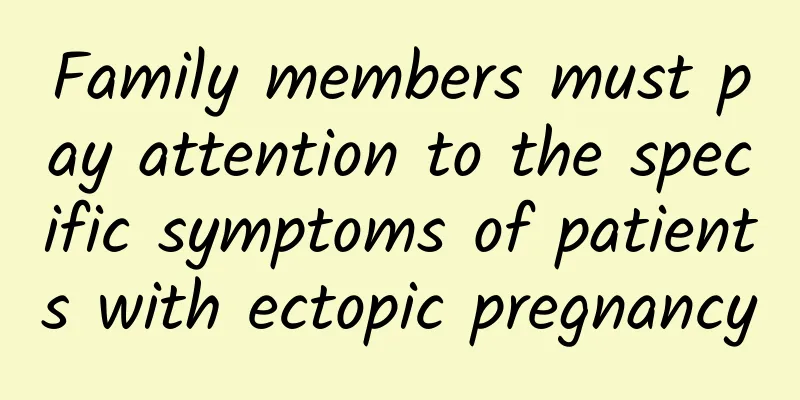Treatment of hypothalamic amenorrhea

|
Treatments for hypothalamic amenorrhea include medication, lifestyle adjustments, and psychological interventions. The specific plan should be formulated according to the cause. Hypothalamic amenorrhea is usually caused by hypothalamic dysfunction. Common causes include stress, excessive exercise, and drastic changes in weight. Comprehensive measures are needed to restore the menstrual cycle. 1. Drug therapy is one of the main treatments for hypothalamic amenorrhea. Commonly used drugs include hormone replacement therapy, gonadotropin-releasing hormone (GnRH) drugs, and oral contraceptives. Hormone replacement therapy helps restore normal menstrual cycles by supplementing estrogen and progesterone. GnRH drugs can stimulate the hypothalamus to release gonadotropin and promote the recovery of ovarian function. Oral contraceptives directly restore menstruation by regulating hormone levels. Specific medication should be taken under the guidance of a doctor to avoid side effects caused by self-medication. 2. Lifestyle adjustment is an important part of treating hypothalamic amenorrhea. Maintain a balanced diet, increase the intake of high-quality protein, healthy fats and complex carbohydrates, and avoid excessive dieting or overeating. Moderate exercise can help improve physical condition, but excessive exercise, especially high-intensity training, should be avoided. Maintain a regular work and rest schedule, ensure adequate sleep time, and reduce the impact of stress on hypothalamic function. Through a healthy lifestyle, gradually restore the body's normal functions. 3. Psychological intervention plays an important role in the treatment of hypothalamic amenorrhea. Long-term stress, anxiety or depression may affect the function of the hypothalamus and lead to amenorrhea. Psychological counseling or cognitive behavioral therapy can help patients relieve psychological stress and improve their emotional state. Relaxation techniques such as meditation and yoga can also effectively reduce stress levels and promote physical recovery. Psychological intervention combined with drug therapy and lifestyle adjustments can improve the treatment effect. The treatment of hypothalamic amenorrhea requires comprehensive consideration of the cause and the patient's specific situation, and gradually restores the menstrual cycle through multiple efforts such as medication, lifestyle, and psychological intervention. Patients should actively cooperate with treatment, undergo regular follow-up examinations, and adjust treatment plans in a timely manner. At the same time, maintaining a positive attitude and avoiding excessive anxiety will help the body recover and stay healthy. |
<<: Is adnexitis easy to treat?
>>: Does cervical hypertrophy gland cyst affect pregnancy?
Recommend
Does Bartholinitis cause constipation?
Bartholinitis is a very common disease in life. I...
Dietary taboos for women with dysmenorrhea
I believe that many women have experienced dysmen...
Skipping breakfast will make you fat! Must-have high-quality protein + carbohydrates
Breakfast is the source of energy to start the da...
Expert introduction: What are the precautions after abortion?
What are the precautions after abortion? I believ...
How to treat the causes of uterine prolapse?
The causes of uterine prolapse are generally birt...
Anxiety and depression are soaring, "happy hormones" are here to help! Nutritionist: Vitamin D and Omega-3 help regulate mood
With the continuous confirmation of local cases o...
Methods to prevent gynecological inflammation after abortion
Spring is the beginning of all things, giving peo...
Do girls know what painless abortion is? How to choose between medical abortion and surgical abortion for unexpected pregnancy
Many female friends, due to their own reasons, do...
Analysis of clinical nursing effect on bacterial vaginosis
Although bacterial vaginosis is not as easy to oc...
Briefly summarize several methods of treating vaginitis
At present, the incidence of vaginitis is increas...
How long does it take to have a medical abortion? Here is the answer
Abortion is divided into medical abortion, natura...
Experts review the precautions for chronic cervicitis
Chronic cervicitis is a type of cervicitis, and t...
What are the common types of menopause?
Understanding the types of menopause is to help e...
What are the symptoms of third-degree cervical erosion in women? How to prevent third-degree cervical erosion in women?
What are the symptoms of third-degree cervical er...
The more you eat, the thinner you get! Fall and winter love seasoning weight loss method
Eat a little every day and lose a little weight! ...









